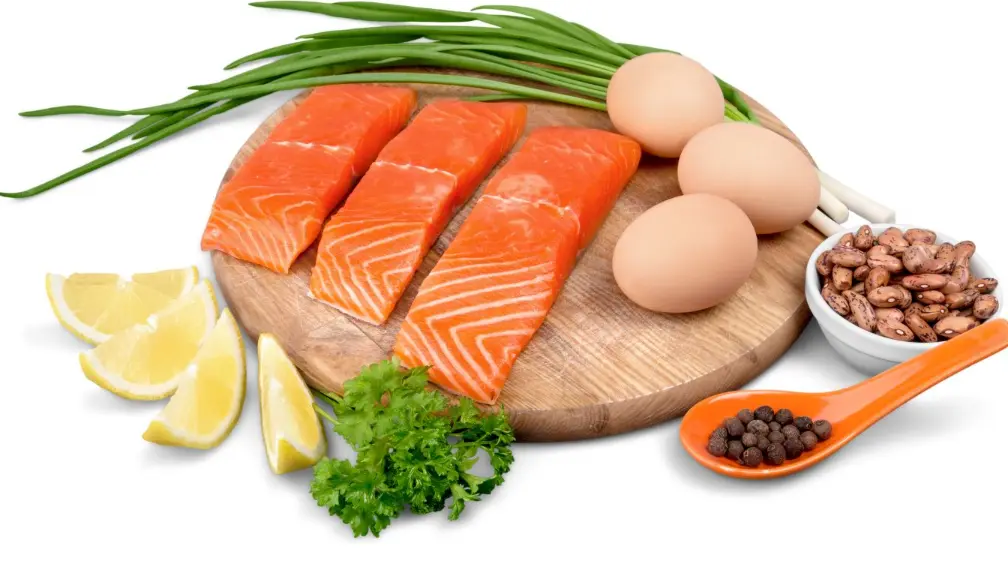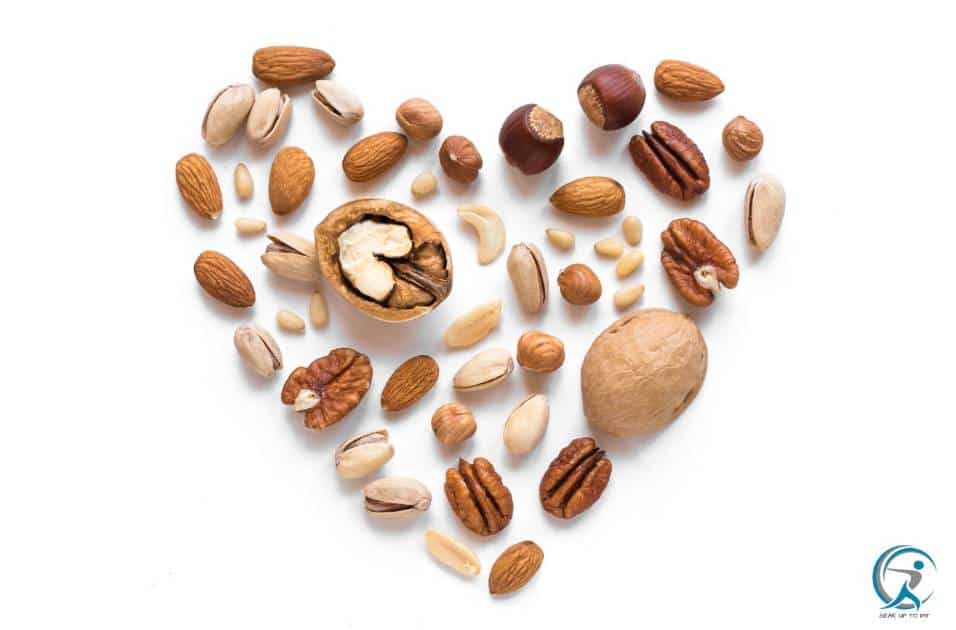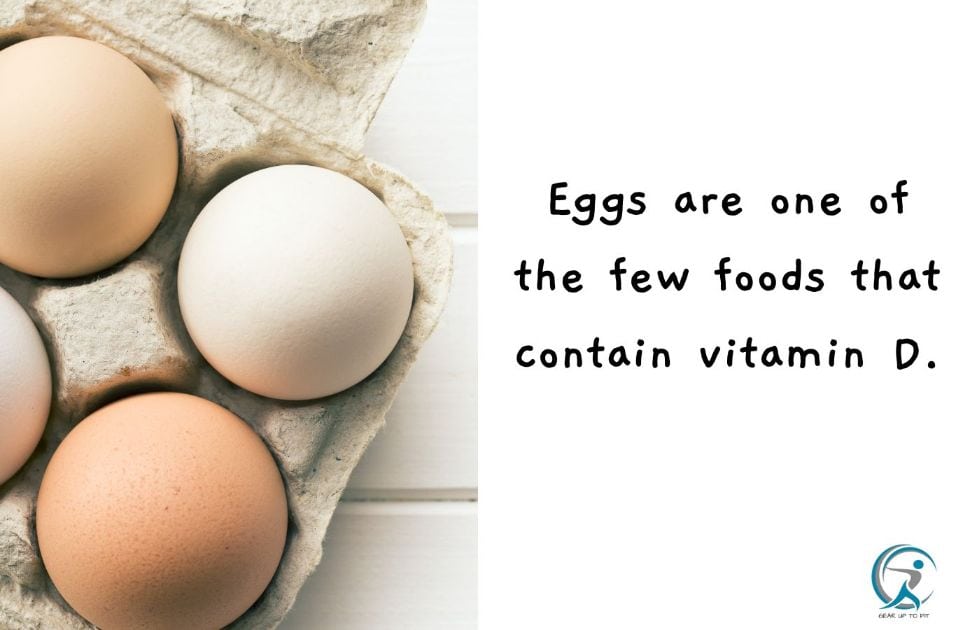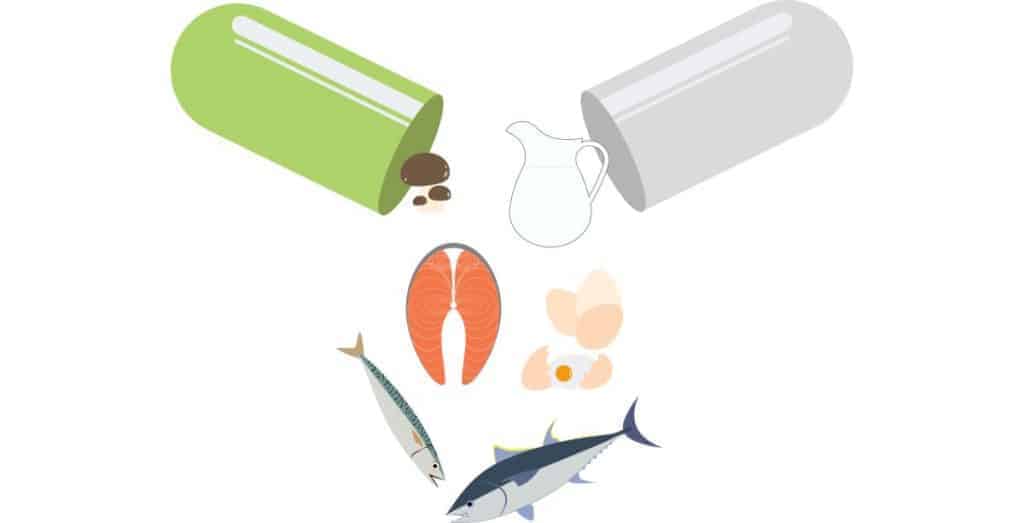Vitamin D is an essential nutrient that helps maintain healthy bones and teeth and regulates calcium levels in the body. Find out the Foods Rich in Vitamin D.
Key Takeaways
Foods Rich in Vitamin D

Vitamin D is an essential nutrient that helps maintain healthy bones and teeth and regulating calcium levels in the body.
Vitamin D also has other benefits, such as helping prevent cancer and heart disease.
Some foods naturally contain vitamin D, including salmon, tuna, mackerel, sardines, herring, trout, lake whitefish, halibut, cod, haddock, flounder, sole, plaice, turbot, and blue crabs.
What is Vitamin D?
Vitamin D, the sunshine vitamin, helps your body absorb calcium and phosphorus. It is one of those vitamins that most people don’t consider much. It’s not something we are told to eat or drink very often. Besides, it’s not something that comes in a bottle. However, it is an essential vitamin that helps keep bones strong and healthy.
It is important for our health, and it’s easy to get enough of it by eating rich foods. It also has other benefits, such as helping prevent cancer and heart disease.
Sources of Vitamin D

Sunlight
Ultraviolet B rays from sunlight cause 7-dehydrocholesterol in skin cells to convert into vitamin D3. It becomes cholecalciferol when exposed to ultraviolet A radiation. Cholecalciferol undergoes two hydroxylation steps in the liver before being converted into 25 D3, the major circulating form of vitamin D.
Food sources
Some plant oils contain preformed vitamin D2. However, they must first be metabolized in the gut wall to become active vitamin D3. Fish liver oils contain large quantities of both forms of vitamin D. Fortified milk products may contain small amounts of vitamin D.
Some mushrooms have been found to contain significant amounts of vitamin D. In addition. Some fish species can accumulate high fat-soluble vitamin concentrations during their life cycle. The recommended daily intake of vitamin D varies depending on age: infants 0–6 months – 10 micrograms per day; 6–12 months – 20 micrograms per day; 1-year-old – 40 micrograms per day, 2 years old – 60 micrograms per day, 3 years old – 80 micrograms per day. Adults over 70 years should take 600 IU/day.
Supplements
Supplements are not regulated under FDA rules, so manufacturers cannot guarantee purity or potency. Most supplements sold today contain synthetic vitamin D3.
Other Sources of Vitamin D
Some foods naturally contain vitamin D, including salmon, tuna, mackerel, sardines, herring, trout, lake whitefish, halibut, cod, haddock, flounder, sole, plaice, turbot, and blue crabs. Other natural food sources include egg yolk, organ meats, mushrooms, cheese, butterfat, margarine, yogurt, kefir, cottage cheese, cream, whole milk, and fortified breakfast cereals.
How Much Do We Need?
The Institute of Medicine recommends 400 international units of vitamin D each day for adults ages 19 through 50. For older individuals, 800 IU is suggested. This amount will ensure you meet your needs without the risk of toxicity. Supplementing 200-400 IUs once weekly is advised if you do not consume adequate dietary vitamin D.
Health Benefits Of Vitamin D

It also plays an important role in bone health, muscle function, immune system support, cardiovascular health, healthy blood sugar levels, and more.
Prevents bone loss
Osteoporosis affects more than 75 million Americans. According to the National Osteoporosis Foundation, osteoporosis causes approximately 700,000 fractures annually in the United States alone. Bone density decreases naturally after menopause due to estrogen depletion. Supplementing with vitamin D prevents bone loss. Studies show that women who consumed at least 500 mg of supplemental vitamin D weekly had significantly fewer hip fractures than nonusers. Women taking 1000 mg of supplemental vitamin D were even protected against vertebral fractures.
Protects Against Cancer
A recent study published in the Journal of Clinical Oncology showed that patients diagnosed with colon cancer who took 2000 IU of vitamin D supplements twice a month reduced their chances of dying by 30 percent. Researchers believe that vitamin D reduces inflammation within the body, thereby preventing tumor growth. Other studies suggest that vitamin D protects against breast, prostate, lung, ovarian, and pancreatic cancers.
Helps Prevent Heart Disease
Heart disease remains the leading killer worldwide. Recent research suggests that low blood levels of vitamin D could contribute to cardiovascular problems. One study shows that people with higher serum vitamin D levels experienced fewer cardiac events like angina pectoris and myocardial infarction. Another study revealed that older adults with lower vitamin D levels were three times more likely to die from coronary artery diseases than those with normal vitamin D levels.
Improves Immunity
Research indicates that vitamin D plays a role in maintaining immune function. People living in areas with little sun exposure tend to suffer from seasonal allergies and colds because they lack sufficient vitamin D. Those who supplement with vitamin D experience fewer cases of respiratory infections.
Promotes Healthy Skin
Vitamin D helps maintain healthy skin. It has also been shown to reduce psoriasis symptoms. A double-blind placebo-controlled trial conducted in Germany involving 100 participants concluded that vitamin D effectively treated mild to moderate plaque-type psoriasis. Participants applied 50000 or 25000 IU of vitamin D cream four times a week for eight weeks. At the end of the treatment period, 87% of subjects treated with vitamin D reported improvement, while only 43% of controls responded positively.
Helps Treat Depression
Depression is one of today’s most common mental disorders affecting millions of people around the world. Research shows that depression often coexists with other medical conditions such as heart disease and diabetes. Low vitamin D status appears to increase the likelihood of developing depressive episodes. Several clinical trials indicate that vitamin D deficiency increases the severity of depression.
Lowers Risk Of Diabetes
Diabetes is another condition associated with insufficient vitamin D levels. High obesity and physical activity rates among children and adolescents appear to play an important role in increasing the prevalence of childhood diabetes. Scientists speculate that inadequate sunlight combined with poor diet contributes to increased incidence of diabetes.
Foods Rich in Vitamin D:
Vitamin D (also called “calciferol”) is a fat-soluble vitamin that is naturally present in a few foods, added to others, and available as a dietary supplement.
Foods like eggs, fish, and mushrooms all contain this under-appreciated vitamin. Foods rich in Vitamin D are also effortless to find, so you don’t have to eat unusual foods to get enough of them.
Liver
The liver is not only one of the most nutritious foods available, but it also contains a significant amount of vitamin d as well as other important vitamins and minerals like iron and B Vitamins. A 100-gram serving size provides about 18 percent of your daily value for vitamin D . Children, seniors, and those with poor kidney function should eat less because it may contain too much vitamin A, which can cause health problems if consumed too much. Enjoy this highly nutritious food for those without such concerns to get your daily dose of vitamin d.
Fish Oil or Cod Liver Oil
Fish oil is a rich source of DHA and EPA omega 3 fatty acids, which are essential for the development of the brain, eyes, and nervous system in infants and prevent cardiovascular diseases in adults. What makes these oils so special is that our bodies seem to convert them into vitamin d when it needs it most, such as during the darker winter months.
In terms of vitamin d content, 100 grams of salmon will provide you with about 10% of your daily value, while a tablespoon of cod liver oil can give you a whopping 62%. That being said, experts recommend not going overboard with supplementation. Because fish oil supplements have been associated with increased bleeding, they should not be taken more than three times a week. In addition, synthetic vitamin d is added to many foods such as milk and orange juice, so you probably do not need supplementation through fish oil.
Sweet Potato
All root vegetables are good sources of Vitamin D, but sweet potato has one of the highest levels. A medium-sized baked sweet potato will provide your body up to 23% of your daily value for Vitamin D, with around 4 grams of fiber and only 110 calories! The beta carotene responsible for the orange color of this vegetable converts into vitamin A during digestion. Hence, if you’re looking for a healthy way to enjoy some sweets, try having a sweet potato instead of a piece of the pie.
Egg Yolk
Egg yolks contain healthy fats, protein, and biotin, an important B vitamin that helps metabolize carbohydrates, fats, and proteins for energy. They also contain vitamin d, so don’t be afraid to eat the whole egg! One large egg will provide you with around 11% of your daily value of Vitamin D, while a single slice of cheese can only give you about 3%. But remember, too much fat in your diet can slow down how quickly your body absorbs vitamin d from food sources [3], so if you’re trying to get more into your diet, try replacing some eggs with vegetables or fruits instead.
Mushrooms
Although they can be easily overlooked on the vegetable aisle, mushrooms are actually one of the highest vitamin D-containing foods on this list, with 100 grams of portabello providing about 15% of your daily value. When other vegetables are harvested in the summer months, mushrooms remain to grow, which is why this winter vegetable provides us with so much Vitamin D.
Fish & Shellfish
These foods provide plenty of omega 3 fatty acids. Still, they also contain high concentrations of vitamin D. Salmon, mackerel, sardines, herring, trout, tuna, halibut, cod, shrimp, crab, lobster, mussels, oysters, clams, scallops, squid, and octopus all contain significant quantities of vitamin D. In fact, salmon is considered to be the richest source of vitamin D because it contains over 100 times more than beef liver. One serving of cooked wild Pacific salmon gives you almost half of your recommended daily value of vitamin D.
Milk Products
Dairy products are great sources of protein, calcium, phosphorus, riboflavin, niacin, and zinc. But did you know that dairy products also contain lots of vitamin D? According to the USDA National Nutrient Database, 1 cup of low-fat cottage cheese supplies 20% of the RDA of vitamin D while 1 cup of skimmed milk supplies 15%. Other good choices include yogurt, ricotta cheese, cheese, kefir, butter, sour cream, heavy whipping cream, evaporated milk, condensed milk, and sweetened condensed milk.
Fortified Cereals
Many bowls of cereal are fortified with vitamin D now. Some brands offer up to 50 percent of the Daily Value of vitamin D in their cereal boxes. Look at the ingredient list before buying any cereal box. Make sure there isn’t anything else added to make the product taste better. For example, many breakfast cereals add sugar to give them sweetness. Sugar doesn’t count towards meeting your daily requirements, so look for healthier options instead.
Orange Juice
Oranges are another fruit loaded with vitamin D. Just ½ orange juice glass offers you nearly 30% of the RDI of vitamin D. That’s why drinking fresh squeezed OJ every morning is a smart idea. Not only does it supply you with loads of vitamin C, but it also makes you feel fuller longer. Plus, oranges are delicious too.
Egg Yolks
As mentioned earlier, one whole egg has about 10 mcg of vitamin D. However. Things get interesting when we talk about vitamin D from an egg yolk perspective. It turns out that the yolk itself contains approximately three times as much vitamin D as the whites do. When combined, these two parts of the egg pack a powerful punch. Eating just 2 tablespoons of raw egg yolk daily could meet your entire requirement for vitamin D.
Beef Liver
Although not everyone likes the flavor or texture of beef liver, it still packs quite a nutritional punch. Compared to other meats, beef liver contains higher iron, copper, selenium, phosphorous, thiamine, choline, folic acid, pantothenic acid, biotin, B12, and vitamins K, E, and A. All those nutrients work together to keep your body healthy and strong. And since beef livers are very lean cuts, they don’t contribute fat to your diet either.
So next time you eat meat, think about including beef liver into your meal plan. It may sound strange at first, but once you try it, you won’t regret it.
Sardines
If you want to enjoy sardines without worrying about mercury poisoning, check out this recipe I created called “Sardine Salad.” The best part about canned sardines is that you can easily control how much salt you consume by adjusting the amount of water used to rinse off the oil. You can use less than half the recommended amount of water and end up with a tasty salad that tastes more like tuna salad.
Salmon
Wild salmon is considered among the top foods with the highest concentration of Omega-3 Fatty Acids. One 4 oz serving provides over 100 mg of EPA + DHA per serving. While farmed salmon usually contains lower concentrations of beneficial fats because they are fed corn-based diets, wild-caught salmon provide significantly greater benefits. Because of its superior nutrition profile, wild salmon should always be included in your weekly meals.
What are the benefits of vitamin D?

The recommended daily intake for adults age 19 to 70 years old is 600 IU per day. However, most people don’t get enough from their diet alone. According to the National Institutes of Health, only 15 percent of Americans take 400 international units weekly. That means nearly 85% of us need additional help getting our daily dose!
How Much Do We Need Each Day?
The Institute of Medicine recommends that all men ages 1 through 70 require 800 International Units of vitamin D daily. Women who aren’t pregnant or nursing should have 1200 IU per day. For children under 12, 1000 IU is sufficient. If you live where there isn’t adequate sunlight exposure throughout the year, supplements will ensure you receive the proper amounts of vitamin D.
Why Should Everyone Take Supplements?
While many experts agree on the importance of supplementing with vitamin D, some disagree on what level constitutes sufficiency. Some say 2000 IU/day, while others recommend 4000 IU/day. Even studies show that too high doses of vitamin D might cause problems such as kidney stones. So if you decide to start taking supplemental vitamin D, choose a reputable brand that doesn’t contain harmful ingredients. Also, remember to consult with your doctor before starting supplementation so they can monitor your progress.
As a veteran fitness technology innovator and the founder of GearUpToFit.com, Alex Papaioannou stands at the intersection of health science and artificial intelligence. With over a decade of specialized experience in digital wellness solutions, he’s transforming how people approach their fitness journey through data-driven methodologies.
